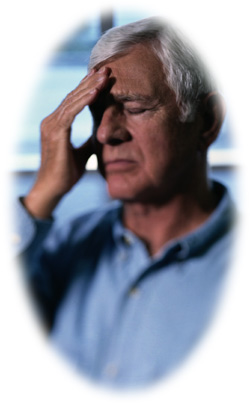Osteoarthritis in older people
Osteoarthritis is the most common type of arthritis and is seen especially among older people.
Continue readingOsteoarthritis is the most common type of arthritis and is seen especially among older people.
Continue readingOsteoarthritis is the most common type of arthritis and is seen especially among older people.
Continue readingAllergic Rhinitis or weather allergy is commonly found in Thailand and it can be in people of all ages.
Continue readingIn today’s society, breathing problems have been increasing rapidly because industrial development results directly in producing
Continue readingThe sinuses are hollow spaces or airways located in the skull and facial bones, with openings into the nose.
Continue reading
Our Vertigo Clinic evaluates and treats patients experiencing vertigo and dizziness problems that suggest the balance mechanism in the inner ear and vestibular nerves are not working properly. Please visit us if you are experiencing any of these symptoms: wooziness, combined with a whirling or spinning sensation; lightheadedness as though you are floating; dizziness so severe that you fear that you may lose your balance and fall; feelings of floating downward; or free-falling.
Vertigo is the sudden sensation that you are unsteady or that your surroundings are moving. You may feel like you are spinning around on a merry-go-round or that your head is spinning inside. In the first type the sufferer feels that his or her body or the environment is spinning. It is commonly caused by sudden disturbance by any illness of the organs of balance. Dizziness is characterized by weakness dull headedness, and is commonly caused by low blood sugar or low blood pressure as chronic illness.
Vertigo can occur after long flights or boat journeys where the mind gets used to turbulence, resulting in a person’s feeling as if he is moving up and down. This usually subsides after a few days. Vertigo can also occur when exposed to high levels of sound pressure rattling the inner ear in which throwing off ones balance and others. Benign paroxysmal positional vertigo (BPPV) is one of the most common disorders that can cause vertigo, and is characterized by brief episodes of mild to intense dizziness associated with specific changes in the position of your head.
There are many causes of Vertigo, including
Because of the different causes, diagnosis takes many factors into account, including:
A. Hearing evaluation
B. Vestibular evaluation
C. Physiology Test
Vertigo is the sudden sensation that you are unsteady or that your surroundings are moving. You may feel like you’re spinning around on a merry-go-round or that your head is spinning inside. The causes are many, but important, so anyone suffering with Vertigo should consult a specialist center to elucidate the cause, and correct it.
The Sinus & Allergy Clinic specializes in the diagnosis and treatment of allergies, sinus conditions, hay fever, chronic coughs, recurrent colds and bronchitis, hives and skin allergies, and other immunologic conditions.

The Bangkok Otolaryngology Clinic specializes in the diagnosis and treatment of diseases and disorders of the ear, nose and throat (ENT) and related structures of the head and neck. Our highly experienced otolaryngologists and audiologists and support team of nurses and technicians provide a wide range of diagnostics and treatments, including:

The Hearing Center provides extensive evaluation and testing for people of all ages who suffer from hearing loss. If you are experiencing difficulty hearing conversations or require higher volume to hear properly, please stop by our Center for a complete diagnostic evaluation.
Coronavirus infection 2012 or Middle East Respiratory Syndrome (MERS) is one of the MERS Corona Virus (MERS-CoV) strains.
Continue readingDepartment of Disease Control, Ministry of Health, predicts number of patients with dengue fever in 2015 to be around 70,000 patients.
Continue reading